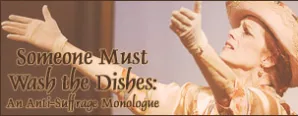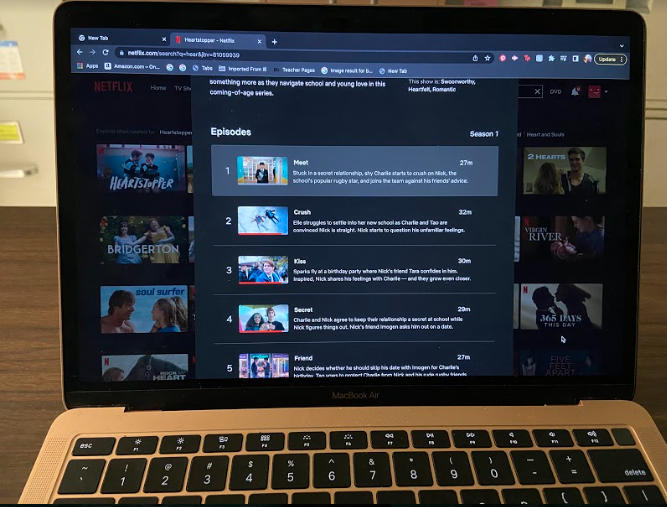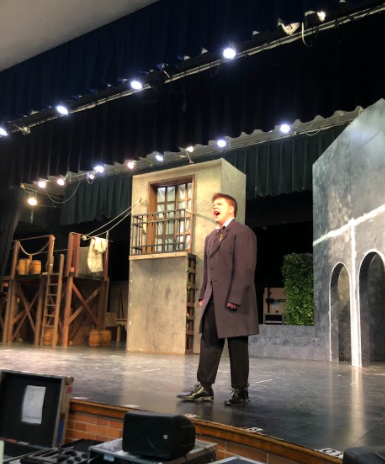On Nov. 27, for their November meeting, the Historical Society of Scotch Plains-Fanwood held a one-woman play called “Someone Must Wash the Dishes: An Anti-Suffrage Attire” at the Shady Rest Scotch Hills Country Club.
It encompasses the viewpoints of female anti-suffragists in the 1910s and was written by pro-Suffragist Marie Jenney Howe in 1912. The play was directed by Warren Kliewer who founded the East Lynne Company in 1980. The main character, Mrs. Harry Horatio Hemmenway, was portrayed by Michele LaRue.
Howe was a Unitarian minister, pro-suffragist and married a progressive man named Frederick C. Howe. In addition to writing the monologue “Someone Must Wash the Dishes”, she formed the Heterodoxy club for feminists who debated different forms of orthodoxy. Diverse women with jobs such as teaching and being a doctor joined this club.
The opinions addressed in the play are not to be taken seriously, although some anti-suffragists – men and women alike – thought similarly to the views addressed in the play.
LaRue has acted in 30 one-woman shows with stories from the Gilded Age and Progressive Era.
In the play, LaRue plays an anti-suffragist woman in 1912, eight years before women gained the right to vote. At the end of the show, she shares a speech she has written to add context to some of the story and arguments addressed.
LaRue incorporated humor into the one-woman performances, although the key points of anti-suffragists addressed were silly in themselves.
The performance was enhanced by the inclusion of stories and quotes from anti-suffragists and suffragists alike. This includes a statement by a woman named Kate during the Civil War Era, hoping that soon enough men would be cleaning and cooking too.
One of the arguments against women’s suffrage presented in the play was that women were inferior to men.
Another viewpoint was supposedly scientific. During this time period, women were believed to have smaller brains than men because their energy went to caring for the household and not to thinking and using the brain.
Some anti-suffragists during this time believed that granting women the right to vote would be to go against the Bible, which uses “he” and explains that Eve was formed from Adam. They thought that women needed someone to look up to such as their husbands and voting rights would against this by making them equals.
Other anti-suffragists said that if women were to vote and by extension get jobs and become self-sufficient, they would give up their previous assignments. Some people could not imagine a man washing the dishes, which is where the show gets its name.
Finally, there was the idea that women’s suffrage would lead to political dissension in marriages between the husband and wife and lead to divorce. Plus, there was the thought that each household should only get one vote each.
Another component of the evening was that viewers could wear outfits of the time period, and could snack on tea and early 1900s American snacks. These included finger sandwiches, Oreos, Lorna Doone cookies, Fig Newtons and tea. The room where the historical society held this event (and where it holds its meetings) was decorated like a 1912 American parlor.
This one-woman show reveals that not all women were in support of woman suffrage, although the arguments were certainly weak and on the brink of ridiculousness
Historical Society Presents: Someone Must Wash the Dishes
December 11, 2018

0
More to Discover







